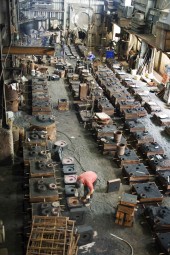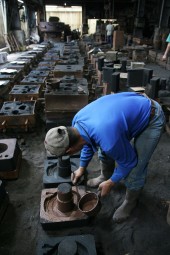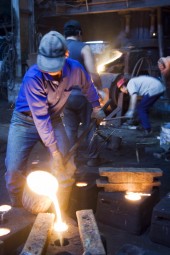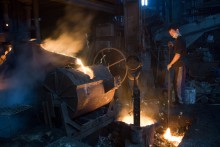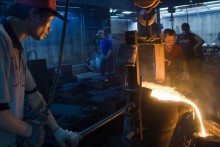TELDAP Collections
| The Disappearing “Jing Qing Foundry” in Yilan |
|
Selective Preference of the 5th Cyber-Island Photography Contest
Casting is a term in the traditional foundry work. In Taiwan, this kind of factory has become a sunset industry. On the one hand, the metal craft highly values experiences and skills; on the other, it is the kind of work that young people despise. The working environment can only be described as dreadful and backbreaking, especially in the process of casting when the temperature is 1,000℃ high, the odor is irritating, and the smoke is eye-stinging. The environment is highly dangerous; it is not something that many people can endure. However, this kind of factories is the unsung hero behind Taiwan’s economic miracle in the early days and helped build Taiwan’s massive foreign exchange reserves. Sadly, with the changes in space and time, these factories either relocated overseas or went bankrupt because of cost problems or the reluctance of young men to learn the skill. This factory belonged to my relatives. It is forced to shut down, disappearing into the ashes of history. The photos show the scenes of the very last day of work. From the perspective of a photographer, I see the spirit of the hardworking people of Taiwan. Even on this last day, with perspiration coming down their faces like raindrops, they still fully concentrated on their tasks. But the perplexity in their faces was so intense! Maybe the government can help these still-unemployed, middle-aged technicians and their families go through this difficult time by providing some kind of assistance. It is my wish that, through my lens, the government will pay more attention to these traditional industries which are going extinct in Taiwan.
To view Gold Prize of the 5th Cyber-Island Photography Contest, please go to The Funeral Orchestra. Text and images are provided by Exhibition of Cyber Island, Taiwan
|







